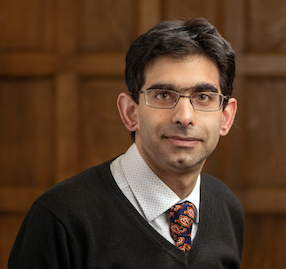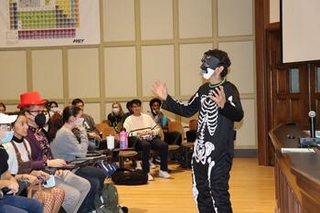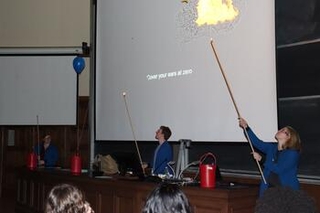The Chemistry of Community

Nilay Hizari
Professor of Chemistry and PI of the Hazari group
Inclusion in a course refers to the practice of creating an environment that is welcoming, supportive, and accessible to all students, regardless of their background, abilities, or identities. A strategy to improve inclusion in a course is via effective communication tools and strategies, which benefits both marginalized and non-marginalized groups. Inclusive pedagogy assists individual students in developing their own academic and interpersonal skills, while also building a safe and inclusive space for the entire course.

Effective communication is a vital component of inclusive pedagogy, which, in practice, helps students build relationships with one another, the instructor and the course content, fosters increased student engagement and motivation, helps identify and address student misconceptions, as well as promotes improved learning outcomes. Yale students continuously highlight and praise courses that use communication tools and strategies effectively and often credit these tools and strategies as factors in their academic success for a course.

Under the instruction of Nilay Hazari, Professor of Chemistry and PI of the Hazari group, students not only grow in their confidence to meaningfully engage in the course material and topics, but also preparation for the diverse and interconnected world they will encounter in their future careers and personal lives. By actively communicating during lunch-time office hours and Microsoft Teams, students in Hazari’s course develop skills and course content proficiency that are essential for the 21st century workforce.
We invite you to listen to our interview with Nilay Hazari on integrating effective communication, technology and humanity into his Introduction to General Chemistry course.
Transcript
This transcript was created via voice to text and is not written conversationally.